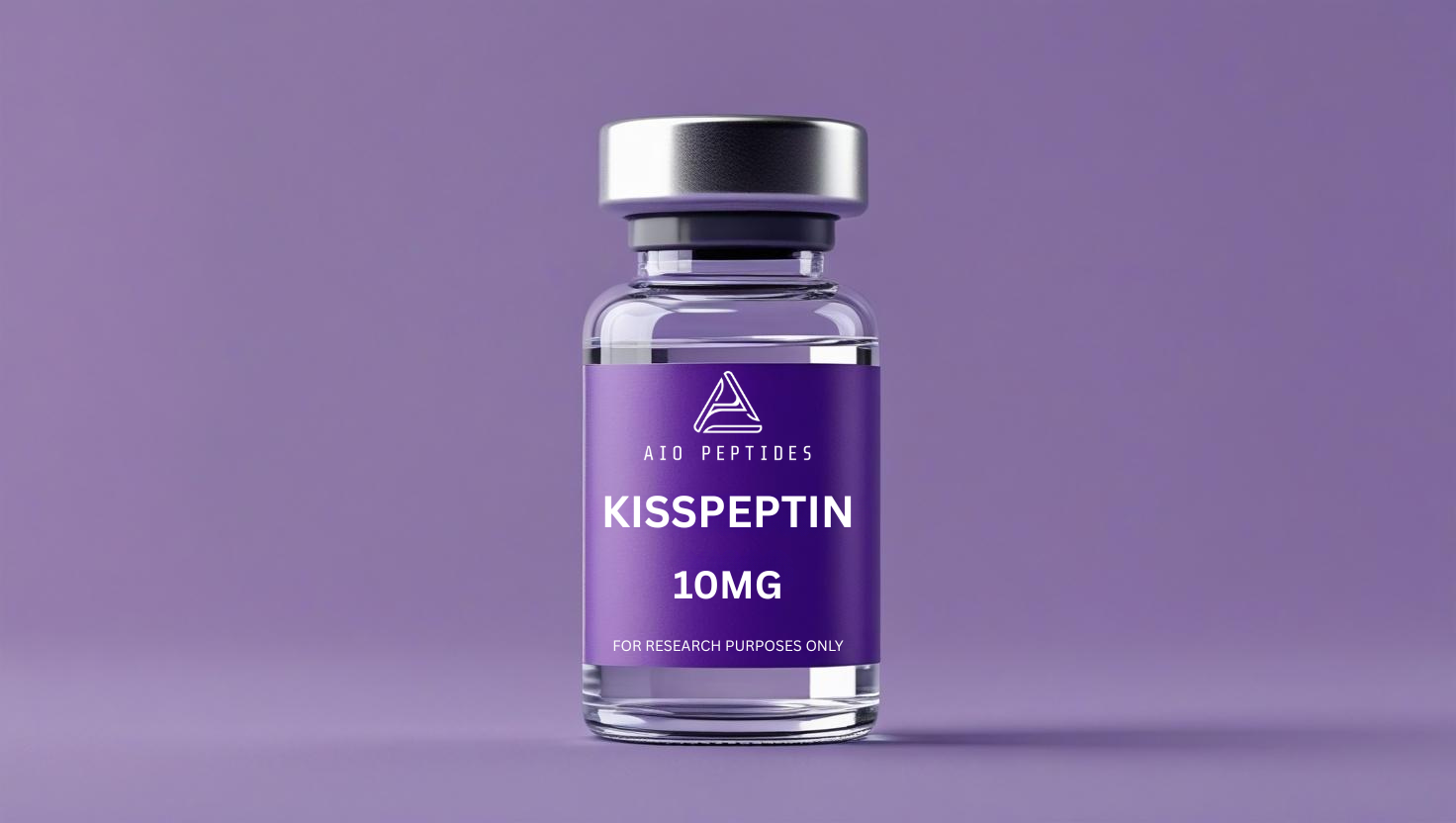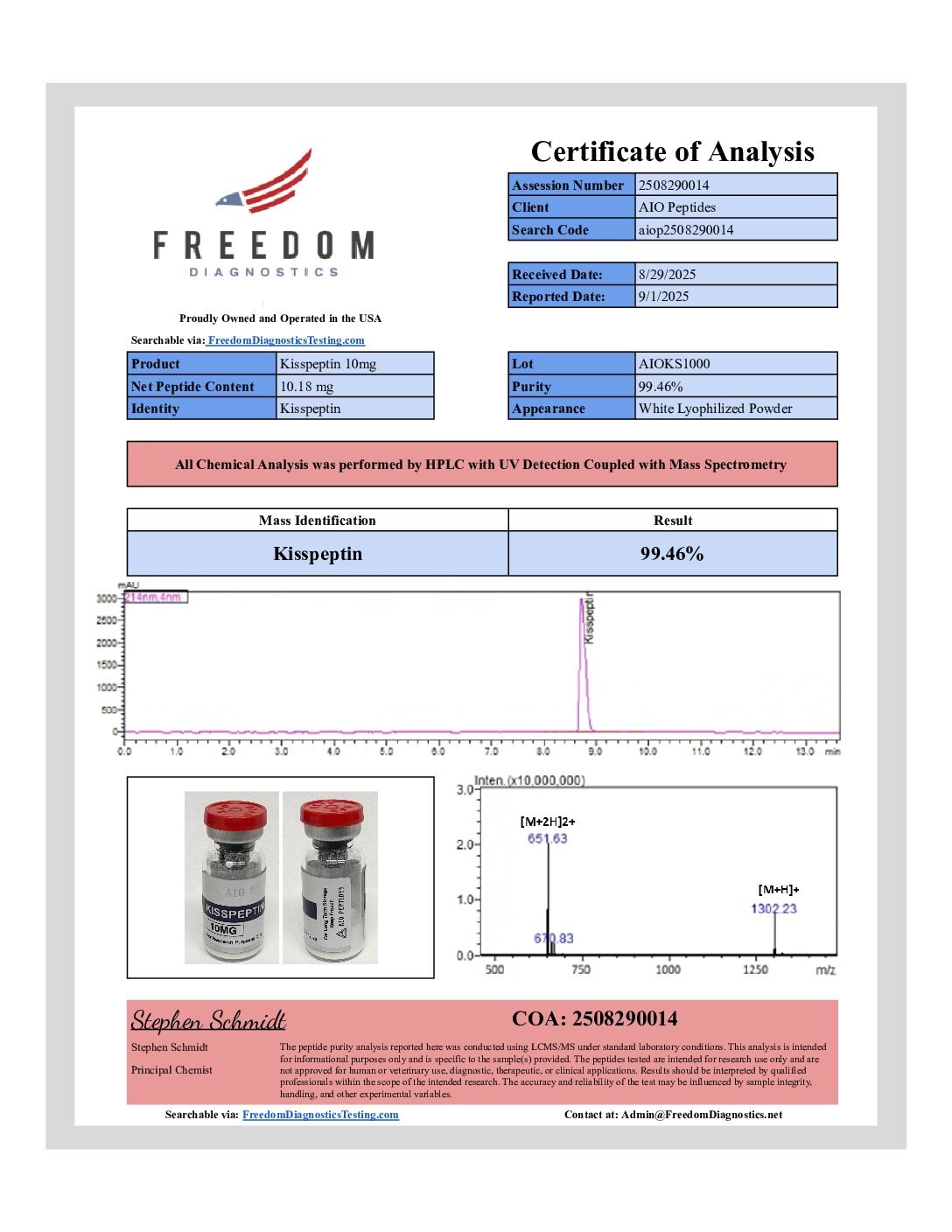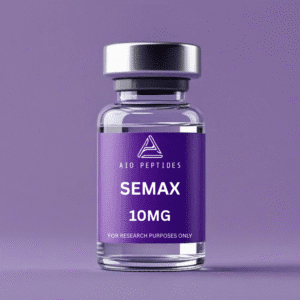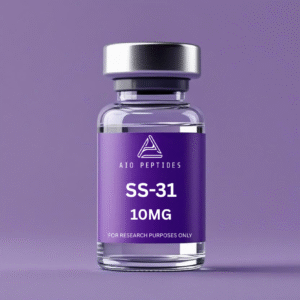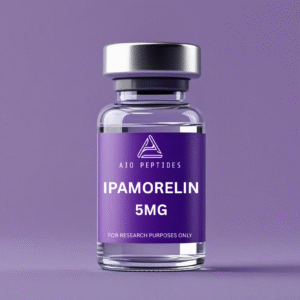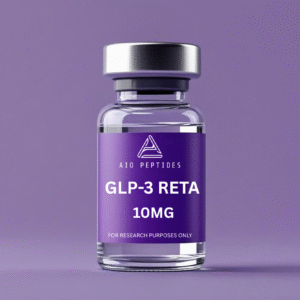Key Research Areas:
- Reproductive Health & Hormonal Regulation
Kisspeptin plays a central role in the hypothalamic-pituitary-gonadal (HPG) axis by stimulating GnRH secretion, regulating the onset of puberty, reproductive hormone release, and fertility in both males and females. - Fertility & Assisted Reproductive Technologies (ART)
Used in clinical settings to safely trigger ovulation in IVF protocols, reducing the risk of ovarian hyperstimulation syndrome (OHSS) compared to traditional agents. Also being explored for treating hypothalamic amenorrhea and other infertility conditions. - Metabolic Function & Energy Balance
Emerging studies suggest kisspeptin influences insulin sensitivity, glucose metabolism, and body weight regulation, indicating a link between reproductive and metabolic health. - Neuroendocrine Signaling & Brain Function
Acts as a neuromodulator beyond the reproductive axis, with evidence supporting roles in mood regulation, behavior, and synaptic plasticity. May also affect stress response via interactions with the limbic system. - Cancer Research
Initially identified as a metastasis suppressor gene (KISS1), kisspeptin and its receptor (GPR54) are studied for anti-metastatic effects in certain cancers, including melanoma, breast, and prostate cancer. - Placental Function & Pregnancy Support
Regulates trophoblast invasion and placental development, making it a key focus in research related to preeclampsia, miscarriage, and fetal growth restriction. - Puberty Disorders & Endocrine Conditions
Investigated as a therapeutic target for delayed puberty, hypogonadotropic hypogonadism, and other developmental hormone imbalances due to its critical role in initiating reproductive hormone cascades. - Cardiovascular Health
Kisspeptin receptors are expressed in the heart and vasculature, and preliminary data suggests involvement in blood pressure regulation and cardiac remodeling. - Bone Health & Growth
Some research indicates kisspeptin may interact with osteoblasts and osteoclasts, potentially influencing bone formation and resorption, particularly in hormone-related bone density loss.
- Product Care and Storage – All products are shipped using the Lyophilization process, which ensures that products remain stable for shipping for up to 3-4 months. Products must be reconstituted to a liquid, by mixing with bacteriostatic water for research and testing.
- Lyophilized or powder form – Store in cool, dry place away from light; can be stored at room temperature. Remains stable for several weeks or more.
For long term storage (months to years) freezing is optimal to preserve stability and maintain integrity. - Reconstituted form – Refrigerate under 39F; peptides will remain stable for up to 30 days.
- Usage – We are unable to provide any dosing instructions, however all products should be considered pharmaceutical grade.
- Disclaimer – This product is for research use only and is not intended for human consumption, diagnostic use, or clinical treatment. Proper laboratory safety protocols should always be followed when handling peptides.

